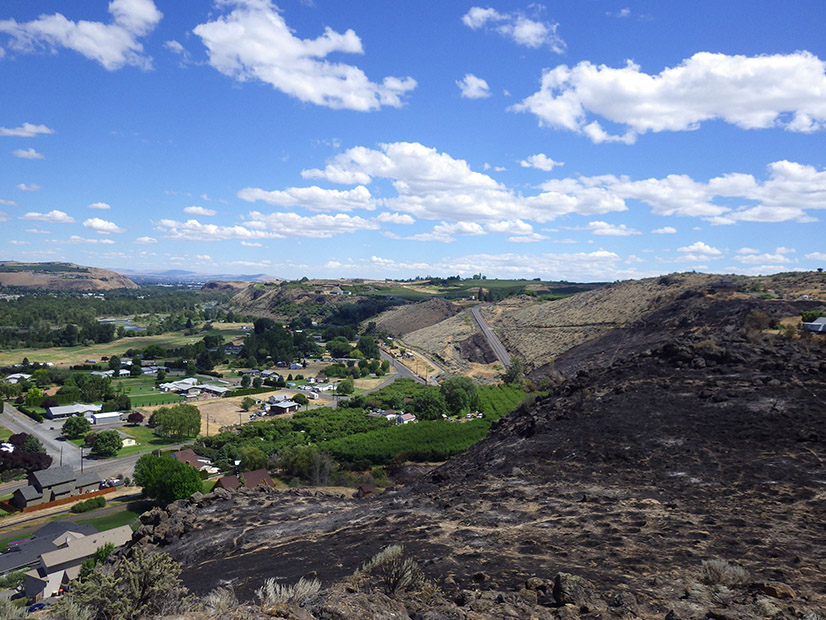
From wildfire dangers to renewable energy supply-chain issues, the insurance industry is becoming more deeply entangled in the risks stemming from climate change.
Those risks were the theme of a virtual conference hosted last week by the Washington State Office of the Insurance Commissioner.
“We’re looking at impacts on our economy,” Washington Insurance Commissioner Mike Kreidler said Wednesday.
Climate change was responsible for $268 billion worth of economic damage worldwide in 2020, of which 64% is uninsured, said Yoon Kim, head of global client services at Moody’s ESG Solutions.
Kim said that more insurance claims are showing up due to bad weather. Meanwhile, the transition from fossil fuels to renewable energy increases litigation risks due to businesses entering uncharted territory, she said. Renewable energy companies are dealing with new markets, supply chains and energy source locations that differ from fossil fuel energy sources, creating a greater likelihood for business mistakes.
Meanwhile, 60% of new homes on the West Coast have been constructed in the wildland-urban interface, which translates into outlying towns and suburbs growing next to wildfire-prone rural lands, said Amy Snover, director of the Climate Impacts Group at the University of Washington. About 1 million Washington homes lie in this zone.
“Many of these have not adapted themselves to wildfire risks,” Snover said. “This is going to create risks to ordinary people who normally don’t pay attention to climate change.”
Anthony Leiserowitz, head of the Yale University Program on Climate Change Communications, studies how people perceive climate change.
He said a survey of U.S. residents this past spring showed 64% of respondents thought climate change is a problem, while 25% were very worried. Fifty-seven percent thought climate change is caused by humans, while 30% believe it is a purely natural phenomenon.
“For many people, they think of it as a distant problem,” Leiserowitz said.
Conference speakers said the insurance industry is well-suited to get businesses, governments and individuals to take climate change more seriously. “If insurance companies perceive big risks, they won’t want to write policies,” Kreidler said.
The National Association of Insurance Commissioners has created a Climate and Resiliency Task Force to tackle the issue. The group is looking at whether new regulations are needed to deal with insurance claims that can be linked to climate change. It is also studying whether measures should be taken to mitigate potential financial losses due to storms, wildfires and other global warming ripple effects.


